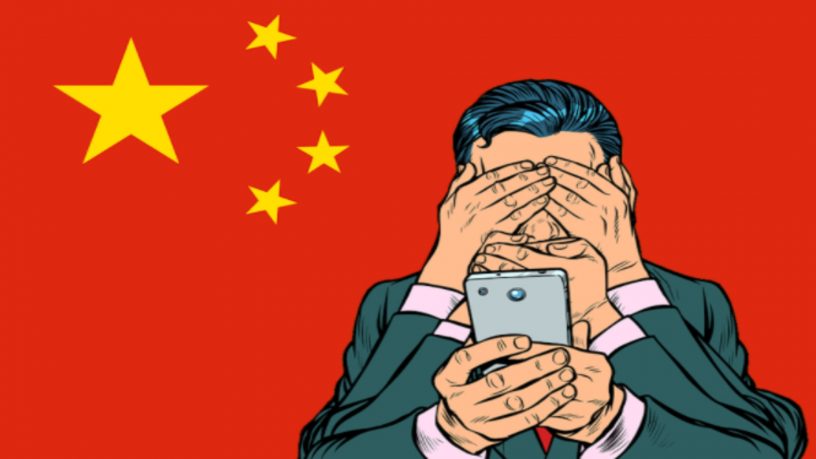China has the most extensive and sophisticated Internet censorship regime in the world. The government restricts access to websites and monitors Internet use. As mandated by the government, China’s main Internet platforms implemented sophisticated self-censorship techniques.
Dubbed the “Great Firewall,” Controlling online speech is accomplished via a variety of means, including website blocking and keyword filtering, social media censorship, and arresting content posters who address sensitive or political matters.
The government has a strong grip over digital news media and other information sources. Online discussion is heavily manipulated, and user-generated material is highly restricted. Websites and social media accounts are not legally permitted to publish news information, though the definition of “news” is unclear.
Self-censorship is common among regular users and journalists, and it occurs in the midst of an increased danger of account closures, real-world retaliation, and legal fines for online speech.
Why is China’s Internet Limited?Â
China’s Internet censorship is a tool for the regime to maintain its position of ultimate power through:
- Social control: the Internet is a platform for free expression, and the diffusion of campaigns might result in anti-government protests.
- Restriction of sensitive content to maintain control over material regarding the Chinese government.
What is the Great Firewall of China?Â

The People’s Republic of China regulates the Internet domestically using a mix of legislative acts and technology. Its function in China’s internet censorship is to restrict access to some foreign websites and to hinder cross-border internet traffic. This has the effect of restricting access to foreign information sources, prohibiting foreign internet tools and mobile applications (e.g., Google Search, Facebook, Twitter, and Wikipedia), and forcing foreign enterprises to comply with local restrictions.
The majority of foreign social media and messaging sites, including Facebook, WhatsApp, Twitter, Instagram, YouTube, Telegram, Snapchat, Line, and Pinterest, are restricted in China. The New York Times and The Wall Street Journal, two of the most well-known foreign news organizations, were placed on the country’s block list as well.
Apart from censorship, The Great Firewall has affected the growth of China’s internal internet economy by encouraging native enterprises and diminishing the usefulness of international internet companies’ products. This enables China’s government to keep control over how the internet operates in the nation.
Censorship of Facebook, Twitter and Google Services

In July 2009, after unrest in Xinjiang, a special autonomous region in western China, Chinese authorities blocked Facebook, Twitter, and Google services. The crackdown was intended to stifle contact amongst independence activists.
In China, the majority of western social media platforms are blocked because they allow users to freely meet and converse with users from other countries, particularly those from Western democracies. Users may also freely post and remark on forums that are not monitored by Chinese officials. This freedom of speech has the potential to undermine Communist Party authority, and hence is seen as a danger.
Until now, the Chinese government has banned a large number of websites in order to retain control on online activists and monitor their people as they use the internet.
Are social media websites accessible for Foreign visitors?Â
Visitors to China’s tropical island of Hainan will be able to use popular social media sites such as Facebook, Twitter, and YouTube that are forbidden elsewhere in the nation, as part of a new tourism strategy devised by local officials. Foreign visitors, on the other hand, will only be allowed to access social media sites such as Facebook within the island’s authorized zones, which are Haikou and Sanya.
How to access restricted websites in China?Â
By connecting to a VPN on your phone, you can access restricted websites in China. A VPN, or virtual private network, encrypts all internet traffic on your device and reroutes it via a distant intermediate server in a location of the user’s choice. By connecting to a VPN server in the United States, for example, the user may have access to all of the material available to Americans.
VPNs are often paid-for membership services that require a monthly or annual fee. However, there are reliable free VPN services available that provide the same functionality as paid VPN services. Unseen Online Unlimited VPN is a completely free, ad-supported VPN that allows you to access prohibited websites and protects you from government monitoring as you browse.
One thing that is important to note – some VPN protocols and apps are fully or partially blocked in China. The Great Firewall also seems to actively block certain IP address ranges that are commonly used for VPN servers. Hence, you may have to try several different providers and protocols until you find one that works. Unseen Online VPN is constantly researching and monitoring this changing environment, and utilizes various techniques to address country-specific challenges.







